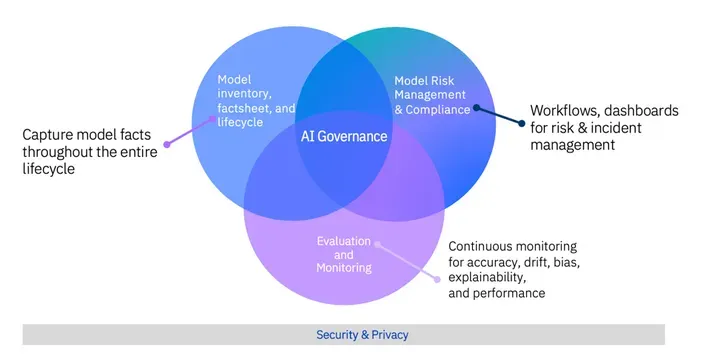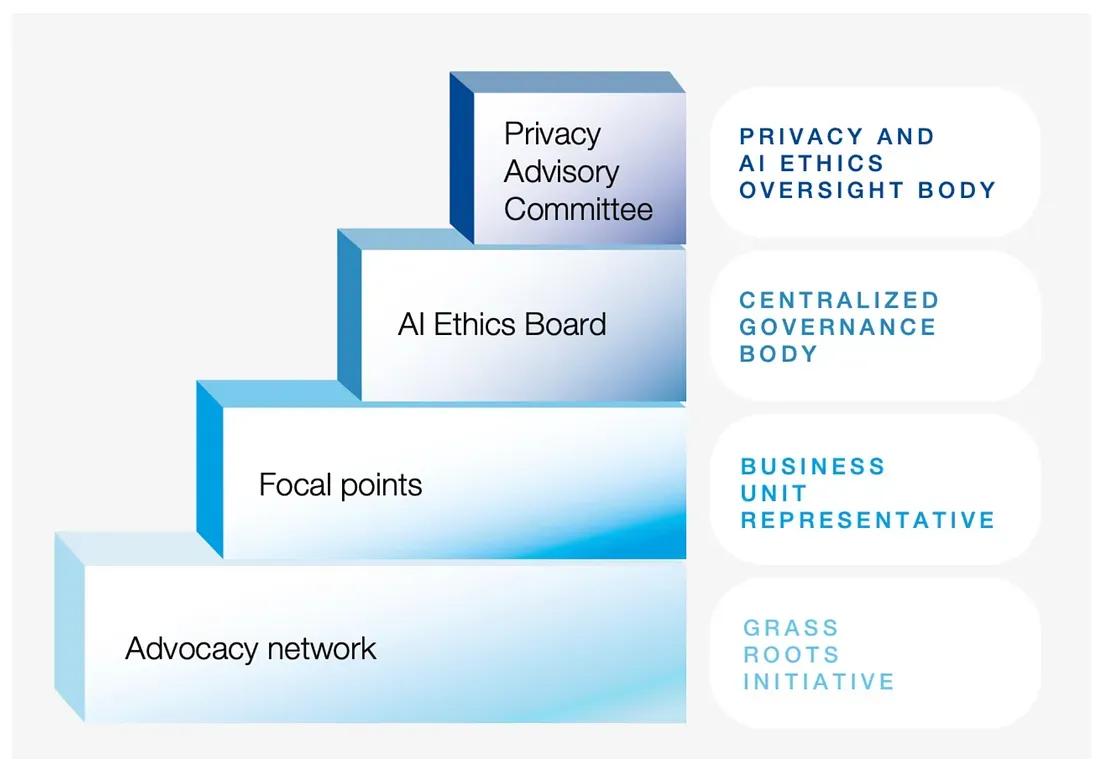business resources
IBM Enables Responsible Enterprise AI With Watsonx.Governance
22 Jan 2024, 4:10 pm GMT
The Watsonx.governance model, developed by IBM, is an Enterprise AI tool to ensure responsible, ethical, and effective use that aligns with business objectives and societal norms.
Enterprise AI governance is the establishment of a framework, policies, and processes designed to supervise and control the implementation, advancement, and utilisation of artificial intelligence (AI) systems within an organisation, business, or broader societal context. As AI technologies continue to permeate various facets of business, government, and daily routines, the importance of robust governance becomes essential.
IBM Consulting has strategically expanded its expertise to help clients and partners adopt responsible AI practices. This includes comprehensive automated model governance and broader organisational governance, addressing crucial aspects such as AI ethics, organisational culture, accountability, training, regulatory compliance, risk management, and cybersecurity threats.
The watsonx.governance model by IBM in the age of AI
IBM was the first big player in tech and in AI, and also, the incredible number of IP. IBM has a total of 122110 patents globally, out of which 35080 have been granted. Of these 122110 patents, more than 59% patents are active. The United States of America is where IBM has filed the maximum number of patents, followed by China and Japan.
As part of the IBM watsonx AI and data platform, the watsonx.governance offering is designed to assist enterprises in scaling and accelerating their AI initiatives. This model is integrated with other products like AI assistants and data storage solutions. IBM goes a step further by offering intellectual property protection for its IBM-developed watsonx models. The broader watsonx portfolio aims to enable businesses to innovate with AI while maintaining transparency, accountability, and control over their AI initiatives.

IBM is recognised for its commitment to ethical AI and has established a set of governance principles, including transparency and explainability, accountability, fairness and bias mitigation, and privacy and security. These principles emphasise clear communication, human-centric decision-making, unbiased AI systems, and robust data privacy and security measures.
The importance of governance for Enterprise AI
Ensuring Ethical Use: Governance frameworks guide businesses in the ethical use of AI, ensuring that AI systems respect user privacy, operate transparently, and do not perpetuate bias or discrimination.
Compliance with Regulations: With the evolving landscape of AI regulations (e.g., GDPR in Europe), governance ensures that AI practices comply with legal standards, avoiding penalties and legal issues.
Risk Management: Proper governance identifies and mitigates risks associated with AI, including data breaches, unintended consequences of AI decisions, and potential misuse of AI technologies.
Building Trust: Transparent and responsible use of AI fosters trust among customers, partners, and regulators, which is crucial for the long-term success of AI initiatives.
Enhancing Performance and Accountability: Governance ensures that AI systems perform as intended and that there is accountability for their outcomes, which is essential for maintaining operational integrity and achieving business objectives.
Responsible Enterprise AI with watsonx.governance by IBM
With watsonx.governance model, IBM enforces the significance of an ethical, AI-centered approach to governance, involving a wide range of stakeholders such as AI developers, users, policymakers, and ethicists. This comprehensive involvement ensures that AI systems align with societal values.

However, IBM also focusses on highlighting the transformative potential of AI in business with its AI Governance Consulting services. With this service, IBM offers expertise to leverage AI for driving business transformation and extracting value from disruptions.
IBM's AI Academy on AI Governance also provides valuable resources for setting up responsible AI workflows and outlines the overall process of AI Enterprise activities. This guidance is geared towards ensuring that organisations' AI initiatives result in trusted outcomes and explainable results, emphasising transparency and accountability in AI operations.
Share this
Dinis Guarda
Author
Dinis Guarda is an author, entrepreneur, founder CEO of ztudium, Businessabc, citiesabc.com and Wisdomia.ai. Dinis is an AI leader, researcher and creator who has been building proprietary solutions based on technologies like digital twins, 3D, spatial computing, AR/VR/MR. Dinis is also an author of multiple books, including "4IR AI Blockchain Fintech IoT Reinventing a Nation" and others. Dinis has been collaborating with the likes of UN / UNITAR, UNESCO, European Space Agency, IBM, Siemens, Mastercard, and governments like USAID, and Malaysia Government to mention a few. He has been a guest lecturer at business schools such as Copenhagen Business School. Dinis is ranked as one of the most influential people and thought leaders in Thinkers360 / Rise Global’s The Artificial Intelligence Power 100, Top 10 Thought leaders in AI, smart cities, metaverse, blockchain, fintech.
previous
AI, Data, Automation, Security, And More: Navigating Tech Frontiers At IBM TechXchange Summit 2024
next
Outsourcing IT services for your business